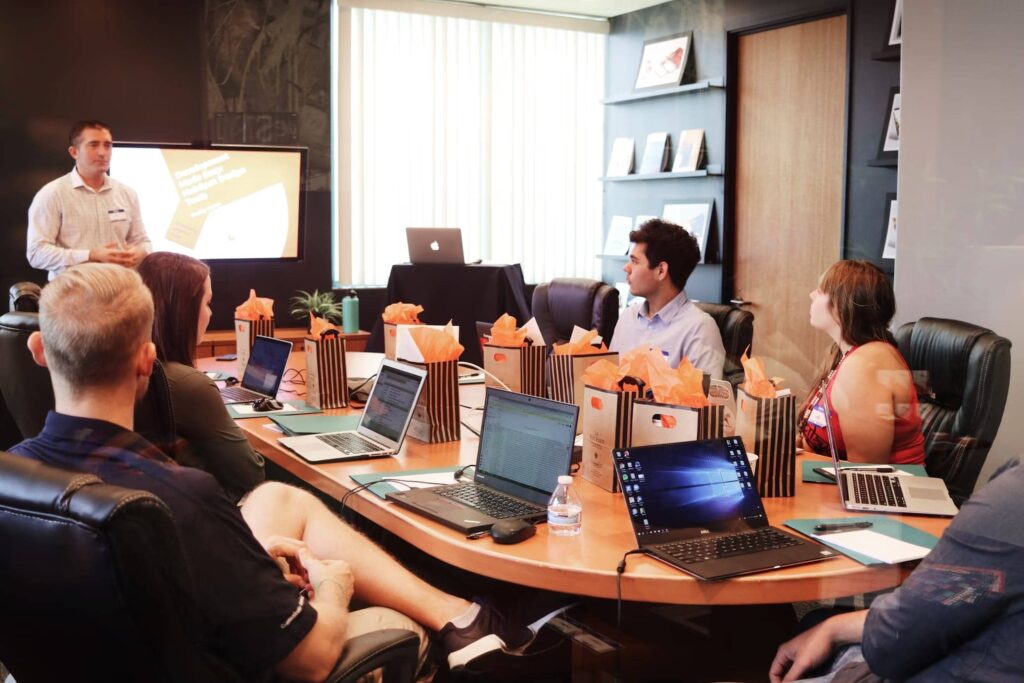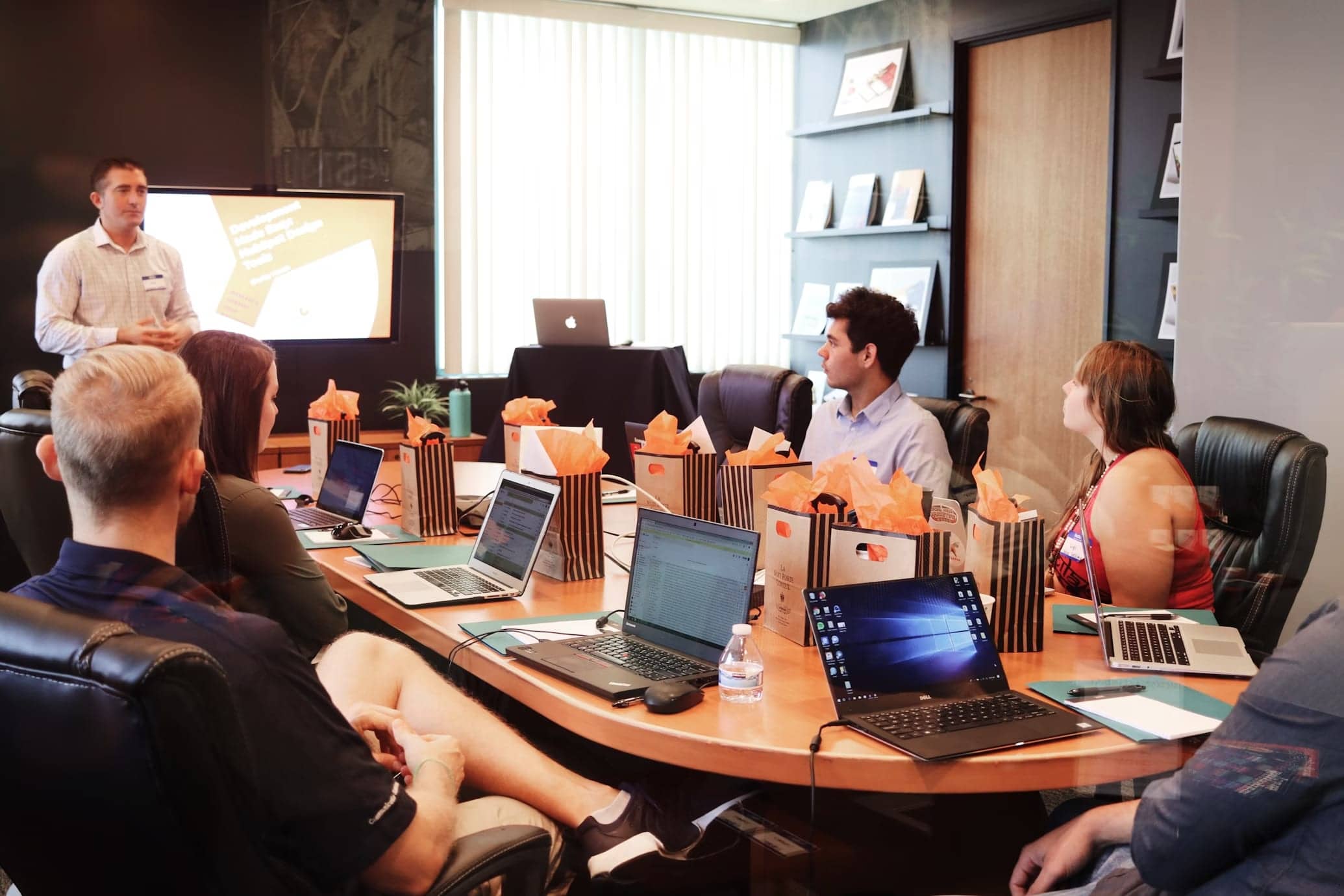Imagine you have a particular concern you want your company to hear. For you, it is of utmost importance and something that you feel should be heard thoroughly and with empathy. However, when you move forward to lodge your grievance, you are met with an AI-powered chatbot, dashing all your expectations.
This is scenario 1. This is an experience that has dashed all your expectations and made you a firm believer that technology has no place in grievance handling. This is an assumption based on your real-life experience.
Once again, you have a particular concern you want your company to hear. This one is just as important for you as the last one. Luckily for you, your company has assured you that HR professionals handle all grievances.
However, your grievance ends up being one of the many that the company has received and only comes across the assigned HR professional after a long time, by which time it has become irrelevant.
This is scenario 2. This is an experience that has met your previous expectations of human touch but dashed all desire for efficient grievance handling.
Neither one of the scenarios is completely fictional, especially for companies with thousands of employees, each with their own unique grievance that follows a unique set of circumstances.
With the ever-evolving nature of HR technology, there is a crucial need for companies to maintain a balance between the use of technology and the presence of the human touch.
What technology brings to the table
According to BCG, 45% of Indian companies have fully or partially implemented Generative AI within their HR departments. The use of HR tools in companies across India is on the rise for more reasons than one.
When working with grievances of employees across the company, the use of HR tools is not just limited to a decrease in administrative tasks and an increase in efficiency.
That is not to say that reducing administrative tasks isn’t a boon for HR professionals working in grievance handling. Through the latest tool in place, employees can submit their grievances from the comfort of their own desks, while HR professionals see a reduction in the time they have to spend in lodging every grievance and giving it their due attention.
Due to this, HR professionals can focus on coming up with solutions to the issues provided to them instead of serving as recordkeepers. Additionally, the organization of records can help HR professionals track down any similar grievances that may have arisen in the past and how they were tackled.
Another significant advantage provided by technology in grievance handling is through the process of predictive data analysis. Through proper analysis of company data, HR tools can come up with possible grievances that might arise in the future. This gives HR professionals the ability to either pre-emptively resolve the grievance or come up with a plan that will help them the future concerns.
With AI-powered chatbots, lodging a grievance has also become much easier in recent times. The chatbots engage employees in an interactive discussion that allows them to express their concerns in a much more comfortable manner. This is in stark contrast to the experience of trying to fit one’s grievance into a particular category and within a certain framework.
The Importance of Being Heard
It is human nature to want to be heard. Even if you are an employee in a company with thousands of employees, it doesn’t diminish the desire to have your concerns heard by someone empathetically and achieve a solution.
As per the Prime Database’s Business Responsibility & Sustainability Reporting (BRSR), out of the the top 1,062 listed companies in India, 944 claimed to have received no complaints regarding health and safety. Similarly, 920 companies had not received any complaints regarding working conditions.
Rather than considering it a good sign about how Indian companies work, most experts in the field agreed that the numbers actually seem to imply that employees are just not comfortable in voicing their grievances and feeling that their concerns will be heard.
As an employer, it is crucial to ensure that all of your employees feel comfortable in sharing their grievances and feel that their concerns are being given due consideration. While recent technology has helped organise the process much more efficiently, it is crucial that the task of grievance handling ultimately be handled by human employees rather than by technological tools.
A key reason behind the necessity of human touch in grievance handling is the empathy required to hear different grievances. For employees, the attention paid to their grievances highlights how much the company values their presence in the workplace.
Suppose a technology-based interface handles an employee’s grievance. In that case, it can make them feel like they are considered simply a part of a machine rather than an individual with unique needs who deserves to be heard. Even if the solution offered by the tool is highly efficient and logical, it can leave a lingering doubt in an employee’s mind about their value to the company.
Even if one particular grievance is handled completely, the approach to the process can be a huge indicator of a company’s values and how much it prioritises its employees.
In contrast, having an actual human being hear an employee’s grievance can allow for greater employee engagement, despite the apparent increase in the workload. Talking to someone who can empathize with the employee’s situations and their reasonings makes employees feel heard and valued immensely.
The human presence in grievance handling can also be beneficial to a company when it comes to negotiating with employees regarding their grievances and disputes. An HR professional represents the human side of their company and can also present the employer’s perspective in a human manner that can help employees understand the company’s perspective better than any HR tools.
An HR professional also opens up the door to the compromising an empathetic manner that can provide benefits to both employees and the company.
Augmentation, Not Replacement
Ultimately, companies need to maintain a delicate balance between the human presence and the technology usage in grievance handling.
Undeniably, technology can help make the process of hearing employees out a much more organised affair and provide the necessary knowledge to HR professionals involved in the process.
The latest HR tools can also help HR professionals priortise different grievances in order of urgency. Some grievances can be more time-sensitive than others, and the knowledge can be a boon for the HR department when trying to provide employees with actionable solutions.
What companies need to keep in mind when using HR tools in grievance handling is that the technology should work in supporting HR professionals instead of taking their place completely.
While AI chatbots can listen to employees and even offer suggestions, they should not act as final decision-makers or points of contact. It is crucial to keep the option of a human touch always open and accessible.
In essence, companies should use the technology to build the structure of grievance handling while retaining the empathy and personalisation in the process through capable human interactions.

